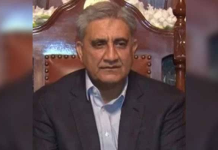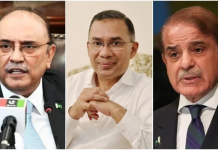In addition to revoking parts of the 18th Amendment, the government is also considering amendments to Article 243 of the Constitution, which deals with the command and control of the armed forces
Ansar Mahmood Bhatti
ISLAMABAD, NOV 4: The government is reportedly preparing to introduce the 27th Constitutional Amendment, a move that has already begun to stir political debate and speculation across the country. According to well-placed sources, the proposed amendment seeks sweeping changes to the existing constitutional framework — including a rollback of key provisions of the 18th Amendment, which devolved significant powers to the provinces.
If enacted, the 27th Amendment would effectively bring crucial departments such as health and population welfare back under the control of the federal government, reversing one of the hallmark features of Pakistan’s decentralization process introduced in 2010. The proposed shift is being seen by many as a centralization of authority at a time when the federation is struggling with governance and fiscal coordination issues.
In addition to revoking parts of the 18th Amendment, the government is also considering amendments to Article 243 of the Constitution, which deals with the command and control of the armed forces. Sources suggest that the move aims to provide legal cover for the potential appointment of a Field Marshal, a development that could have profound implications for Pakistan’s civil-military balance.
Moreover, the powers of the judiciary may also be curtailed under the new constitutional scheme. Reports indicate that the government intends to establish a full-fledged Constitutional Court, separate from the existing Supreme Court structure. A similar concept was floated earlier under the 26th Amendment, which created a constitutional bench, but it failed to achieve its intended objectives.
Critics argue that the new amendment is less about reform and more about consolidating power. “One thing is clear — this amendment has nothing to do with the welfare of the people of Pakistan. It’s purely a power game, an exercise in dominance,” a senior political analyst remarked.
The Pakistan Peoples Party (PPP), which was the chief architect of the 18th Amendment, has strongly opposed the proposed changes. Party leaders fear that undoing provincial autonomy will undermine the federal structure of the state. However, political insiders suggest that despite its initial resistance, the PPP may ultimately strike a deal if it receives certain political concessions.
As deliberations continue behind closed doors, the 27th Amendment appears set to reshape Pakistan’s political and constitutional landscape once again — though not necessarily in favor of the common citizen.
Another leading political party the PTI has also decided to oppose the amendment. The PTI leadership made it clear that any attempt to cut powers of the judiciary or to harm the spirit of the constitution shall be resisted.

















